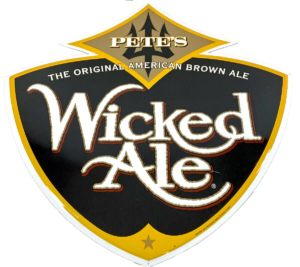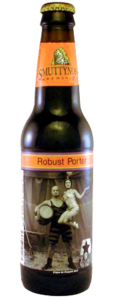This last essay was sent to us by the well-known author Aloysius Krumpelwitz, who writes under the pen-name “Anon.” We meant to turn him down, for the rest of us disagree strongly with his obvious anti-intellectualism, but we had misplaced our rejection slips. So we compromised by making him write in the first-person plural, in honor of our multiple personalities.
—Torkulweef, Tiresias, Cassandra, Sudo, et al.
…for a whale-ship was my Yale College and my Harvard.
—Melville, Moby-Dick
It’s a good thing that we are indifferent to success, having had more of it than is really necessary, because we’re on the verge of destroying all our credibility as a guide to writers. And we don’t even care.
We’re not a big fan of writing classes.
But how can anyone not like writing classes? After all, where would Homer, Dante, and Shakespeare be if they hadn’t taken evening classes in creative writing at the local community college? Didn’t Thoreau, Emerson, Richard Henry Dana, Hawthorne, and Melville all major in creative writing at Harvard College?
Many years ago, a brilliant writer wrote an essay in which he derided the practice of turning universities into places for people to write fiction. At least we think that is what he was doing; we should never have released our grip on that issue. But just as we were cheering him on, he proposed a better model for writers of fiction. Instead of teaching at a university, they should find a job that actually gave them time to write, which university life doesn’t really do. They might become dental hygienists, for example, so that they had their evenings free to write novels.
Think about that for a moment. Bizarrely, if you live in the same age as we, there is every likelihood that you won’t be stunned by the idiocy of this suggestion.
Why is it idiotic? Because it loses sight of the fact that writing is typically about something; it has a database. Nowadays we’ve forgotten this, largely because the database, the very foundation of most writing, is the part that you can’t teach in a writing class. Even intelligent people like this essayist have forgotten that it is of some importance. Nothing against dental hygiene, which we even approve of, but imagine that Melville went into dental hygiene instead of to sea on a whaler.
“What’s your story about?” his agent asks.
“Well, it’s about a tooth.”
“A tooth,” says the agent.
“Well, a bad tooth. It threatens the foundations of modern civilization.”
“Indeed.”
“A presidential candidate, on the verge of being elected, suffers a severe toothache on the eve of a presidential debate, and the hero, a young dentist, is called in to consult. But he is distracted by his love of the pure maiden who scratches tartar off the teeth of his patients, and…”
“Yes, yes,” says the agent. “I have to see a man about a whale.”
Writing teachers profit by pretending that writing is a matter of technique, even though anyone who reads and writes and submits manuscripts to editors can hardly fail to learn technique, short of actually trying not to learn it.
But the problem is even worse than this. After all, everyone has a database of some sort. What you really need is an original database and an original style, neither of which you’re likely to acquire at a university. Are you going to learn an original style by reading your story to fellow students at a university and taking their criticism seriously? Of the American authors mentioned above, the one who didn’t actually go to Harvard is Melville, who sailed around the world rendering whales into lamp oil, thereby acquiring a database loaded with memorable characters, diction, and possibilities for drama. Another member of our list, Richard Henry Dana, provides us with an equally striking example. From a well-off family, he went off on a sailing ship for health reasons and wrote Two Years Before the Mast, a memoir that remains an engrossing read. Try to imagine Melville and Dana instead spending those years teaching creative writing at Harvard and writing novels in their spare time. About what? Feuds in the English department? Mark Twain ended his formal education at age 12; it is unlikely that he took evening courses in writing. Instead he boned up on endless forms of real-life experience that could be turned into literature.
The good news is that if you are a true genius, it probably doesn’t matter what your database is. Shakespeare comes to mind. Goethe too. We won’t be proposing improvements to Hamlet or Faust but will instead leave that to the geniuses who improved the King James version of the Bible and made it chatty. Great imagination makes up for a lack of database. Kafka—but not in translation—may be the best example of this. There are other writers, such as Jane Austen, with a fairly marginal database and a lot of talent, but of course if she lived in our age, she would waste that talent trying to teach undergraduates how to write novels without learning something about the world first.
Finally, there is the occasional writer who has figured all of this out and come up with ways to solve the dilemma of wanting a steady job and a database more interesting than that of a writing teacher.
We give you John McPhee, one of our favorite writers.
McPhee, besides being one of the best-known writing teachers, is a personal hero of ours because he actually took passage on a merchant ship in order to acquire a competent database from which to write a book about that particular industry. Pretty much like Melville and Dana.
So how did writers learn to write before the universities took over and unimproved the process?
Well, the American writers huddled together at the beginning of this essay all did the same thing: they kept journals. The first thing that keeping a journal teaches you is that you don’t have a clue how to make your writing interesting. But that’s a good start. We still have the journal we started as a teenager, and we keep it against the day our sleeping pills lose the battle with our insomnia.
At the beginning, your journal may have days that look like this:
Got up late and felt rotten. I didn’t do much for a couple hours but then had to go to work, even though I didn’t feel at all like working. And then Mr. Hoellenhund kept me overtime, and I got into an argument with a customer, and finally when I got home I ate a whole pizza before staggering off to bed.
This example points up a major problem with our lives: to be safe, we have to be a bit dull. Now, the key to turning your dull life into an interesting account is to create sentences that have never been used before. This isn’t as hard as it sounds. For one thing, you’re free to make a shameless use of lies, as long as they are obvious and used to make a point in a new way. No one calls Mark Twain a liar because most of what he wrote couldn’t be matched detail for detail with reality. Daily life is old and haggard and much in need of cosmetic surgery to be presentable to strangers.
So how would you rewrite the above passage? Well, there are countless ways, and probably almost all of them would be longer than the original. Let’s stay with just the first sentence: “Got up late and felt rotten.” All the words here have the fatal defect that they are used properly, which means that they have lost their shine; worse, the events are commonplace.
So let’s make something up. We’ll start by using normal words and just tinkering with the details:
I would have got up on time, except that I kept going back to sleep to find out how my nightmare would turn out. But eventually my bladder tapped me on the kidneys and reminded me that I had drunk seven bottles of Abita Turbodog before retiring last night.
Why “Abita Turbodog” (an actual beer)? Because we didn’t have to go past the “a’s” to find a really weird beer-name in an alphabetical list on the Internet. Coors, Budweiser, and Miller’s don’t jump out at the reader and startle him. But we would also have been happy with Logjam Ax Handle Ale, Pete’s Wicked Bohemian Pilsner, Rudolph’s Revenge Winter Ale, or Smuttynose Robust Porter. On mature reflection, in fact, Smuttynose would be our first choice.
A key point here is how easy it is to make up a brand-new phrase or sentence. We Googled the last sentence in the last paragraph and discovered that, as far as the Internet knows, we alone have created that particular sentence. This doesn’t make it good, but it does make it more vivid than “Budweiser is my favorite beer,” which came up 1970 times on Google.
Now, for the creation of vividness there is scarcely any more useful practice than that of using words a bit inappropriately. In our revision of the original journal-entry, we were trying to avoid doing this, so as to isolate the problems of vivid writing, but long habit interfered with our attempt to keep it dull. We refer to the last sentence of our example: “…and reminded me that I had drunk seven bottles of Abita Turbodog before retiring last night.”
Here’s a character in Evelyn Waugh’s Men at Arms pointing up the implications of “retiring”:
“‘Retiring’ is good. It sounds like a maiden aunt going to bed.”
Because of this, it is in high contrast to the expected term in our passage, which would be something like “passing out.” And it is contrast that generates vividness. This is why we put “mature reflection” in close proximity to “Smuttynose.”
My colleagues said we would get back to the question of the literary form that is characterized by sentence fragments. Have you figured that out yet? If not, keep working on your journal, stop seeking salvation in writing classes, and find an original style and database to work with.
Originally published in another dementia on September 02, 2011


